Preparing your Lungs for the Invisible Enemies
The Assault on Our Lungs. A Lifetime Battle.
Putting aside how bad smoking is, the air we breathe can be filled with many harmful substances which most the time are an invisible enemy.
The “WHO” World Health Organization statistics state that 4.2 million people die each year from air pollution. One in every 5 people in the United States dies from cigarette smoke.
“At its height, COVID19 was killing over 8000 people a day”
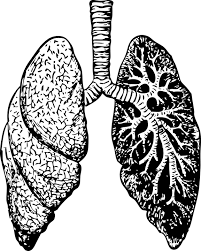
This article focuses on recognizing the threat, ways to avoid the many enemies, cleaning and healing techniques, and good habits in keeping a strong defense strategy for your cardiovascular system.
Fine dust, toxic fumes from chemicals, viruses, and fungus, can do a lot of harm with short exposure. Bad eating and drinking habits also lead to unhealthy lungs and even lead to more serious life-threatening illnesses. With the new COVID19 Invisible Virus we can confidently declare cardiovascular health is a life and death issue.
No matter what line of work you are into sports healthy if you are a young healthy student, or in your senior citizen golden years, beware!
Recognizing the Enemy
We always hear how secondhand smoke is harmful but let’s also think about second-hand toxic fumes from gassing up. Dust that is roweled up into the air from cleaning up around the house and yard. Harsh odors from cleaning and perfume products, or even something as innocent as baby powder.
Heading out into the world we face an invasion of all types of exhaust fumes from cars, factories, and machinery, toxic dust kicked up off the street from wind and movement, or even smelling the wonderful flavors of a barbecue. Transportation such as taking the bus, subway, and even more threatening airplanes puts ourselves on the front lines no matter who we are.
Depending on your profession, those in heavy industries usually already take on workplace safety measures in protecting workers health.
Unexpected dangers exist in office buildings as well as we are finding out now with COVID 19 as this virus spreads with a simple breeze or contact on surfaces.
It is time to prepare and know the lungs are exceptionally good and cleaning and fixing themselves in most situations. Like most health problems there is a combination of things you need to do when optimizing your cardio health. If you think you will be able to simply take some supplements, buy a new lung, or take some pharma miracle, it’s not so easy. You need to look deeper into reality and continue reading. The lungs are vastly different than any other organ and essential for keeping the rest of the body healthy.
Effects of Bad Air and Lung Damage
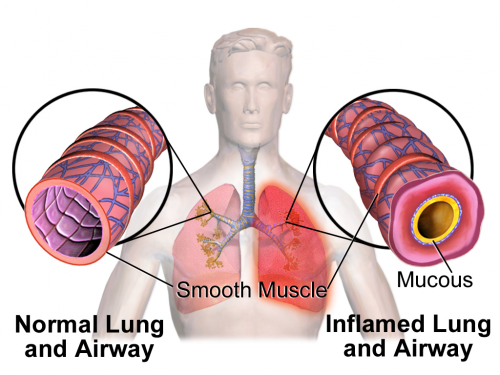 People who get regular exposure to air pollution, and those with chronic conditions that affect the respiratory system, such as asthma, chronic obstructive pulmonary disease (COPD), and cystic fibrosis need to pay attention. Chronic Bronchitis, Emphysema, Lung Cancer, Bronchiectasis, Pneumonia, and now our newest enemy COVID-19, cause death. Slowly and Suddenly there is no mercy. This is a fact as we watch television in front of our own eyes.
People who get regular exposure to air pollution, and those with chronic conditions that affect the respiratory system, such as asthma, chronic obstructive pulmonary disease (COPD), and cystic fibrosis need to pay attention. Chronic Bronchitis, Emphysema, Lung Cancer, Bronchiectasis, Pneumonia, and now our newest enemy COVID-19, cause death. Slowly and Suddenly there is no mercy. This is a fact as we watch television in front of our own eyes.
Unhealthy lungs also create a negative impact on our lifestyles. Not being able to keep up with your children, enjoying a hike or sports game, gasping for air to pick up the ball.
Finding itself to climb the stairs without gasping for air. But beyond physical good cardio health is important to our brains getting regular quality oxygen to help us think straight and keeping anxiety away. Good oxygen fuels our blood which in turn keeps our heart healthy pumping out positive vibrations to the rest of our body.
There are two kinds of long-term damage to the lungs: emphysema and chronic bronchitis. These are known as a chronic obstructive pulmonary disease (COPD). The tiny air sacs that manage oxygen are destroyed and cannot be replaced. Chronic bronchitis causes inflammation of the airways that lead to structural damage will remain.
Lung cleansing techniques may benefit people who smoke, people who get regular exposure to air pollution, and those with chronic conditions that affect the respiratory system, such as asthma, chronic obstructive pulmonary disease, and cystic fibrosis.
Understanding the Signs of Damage
Being attacked to air pollution and toxins over and over accelerate damage that leads to oxidation and free radicals that damage sensitive tissues in the respiratory tract.
If you have pneumonia or bronchitis most of the time your lungs can recover. Lifetime damage from chronic injury, like years of smoking, working around pollutants, or not taking care of a viral infection can leave lasting effects and the lungs can only do so much to repair themselves.
Your chest may feel full, congested, or hot on fire. Mucus gathers in the respiratory tract to catch microbes and pathogens, which adds to the feeling of heaviness and pressure. Your lungs start to reduce vital functions like; lung oxygen capacity, healthy breathing rhythm, cause inflammation and expose your system to new dangers. It starts with coughing, sharp pain, tightness in the chest, burning in the upper chest, and wheezing with shortness of breath with throat irritation.
Food & Drink Habits and Breathing
Metabolism is the process of changing food to fuel. Food and Oxygen or what is needed to produce energy and carbon dioxide which we exhale. Your body needs the right mixture of nutrients to breathe properly and keep healthy. Eating a diet with fewer carbohydrates and more good fat helps breathe easier. A balanced diet with a variety of nutrients working together will optimize your cardio health.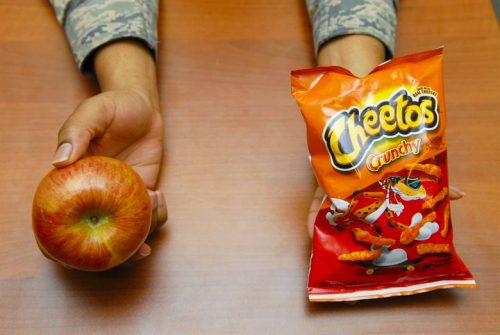
Later in this article, we will highlight food, drinks, herbs, and other natural ways to strengthen your lungs, but exercise and mitigating threats also play a vital role. Here are some good practices in keeping a good diet for cardio health.
- Get some rest before eating
- Eating more in the morning has always been better for your body
- Eat smaller portions during the day. A full stomach creates less room for your lungs to be free to fill up with plenty of air.
- Do not eat foods that cause gas and bloating in your digestive system
Acid Reflux and the Lungs
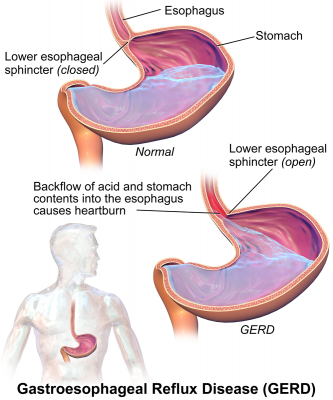
At the end of the esophagus, there is a valve that keeps fluids in your stomach. The valve is made of a ring of muscle and from years of bad eating habits become damaged and do not function. Stomach acids come back up the throat which is called heartburn or acid reflux. Chronic acid reflux leads to breathing problems as the chest muscles become more inflame and enhances lung disease symptoms.
Avoiding acidic food and drinks and improving the time you eat can reduce acid reflux, therefore, leading to better breathing.
Foods and Drinks to Avoid or Consume in Moderation
Many foods can trigger symptoms flare-ups for COPD and other chronic lung diseases, Fried, salty, spicy, and acid type foods cause boating with discomfort putting pressure on the diaphragm, causing your lungs to struggle to breathe. Overeating of junk processed foods causes weight gain which also puts pressure on the lungs.
All of this raises bad cholesterol levels to increase the risk of heart disease there for restricting good oxygen flow with the lungs.
Acidic Drinks: Citric Juices like Orange & Grapefruits, Coffee, & Tomato Juice.
Carbonated Beverages which are full of sugar and cause bloating. Pop, Beer, sparkling wine, whiskey.
Processed Meats like Cold Cuts: Many cured types of meat contain nitrates, which are preservative type additives. Bacon, cold cuts like ham and hotdogs, and other processed meats have ingredients for color or to extend shelf life that harms your health. Studies have been, done with a focus on respiratory issues, that nitrates increase the risk for COPD.
Dairy Products like Milk have health benefits like vitamin D, but it has been known to increase mucus in the intestines with people with lung diseases making it harder to breathe. People who are lactose intolerant and sensitive, too much heavy creamy dairy causes mucous and inflammation in the airways restricting a good flow of oxygen.
Cruciferous Vegetables that cause bloating. Uncomfortable on the lungs especially if you have lung disease. Cauliflower, radishes, cabbages, bok choy, broccoli, brussels sprouts also are very healthy full of fiber but can cause a gassy feeling. Yes, they also are healthy for the lungs and must be eaten properly at the right time when considering your digestive system.
Can Lungs Be Cleaned? Yes!
There is no medicine, supplement, or treatment that can cure lung problems. If you are wanting to clean out your lungs, you are going to have to take a well-rounded approach taking on a combination of efforts. There is a range of exercises and methods that are effective, but you will also need to practice self-control and make some serious lifestyle changes.
The first step to improving your lung health is to flush out or clear out the bad mucous build-up that is causing chest congestion. The blocking of the airways reduces your lung capacity and causes inflammation. The toxic contaminants and fluids need to be drained or they will lead to more severe chronic illness over time.
There are several methods to assist your body in flushing out the lungs. It is important though that you do your research and consult your doctor before taking on any new exercise or treatment to clean out your lungs.

Steam Therapy
Steam therapy is the practice of inhaling steam to drain out bad mucous blocking the airways. The warm vapor loosens up mucous allowing it to flush itself out of the lungs easier. This method can give immediate relief especially with some ginger, lemon, and honey brewed up as a tea.
The Coughing Exercise
Many people who smoke and lung issues will cough a lot in the morning.
Why? Because laying down, the type of breathing when sleeping and being relaxed starts to move the bad mucous out of the body and as you stand up in the morning your body is trying to naturally eject that evil enemy.
Coughing loosens up mucous and sends it up through the airways expelling toxins out that were trapped in the system causing damage. Controlled coughing should be considered an exercise and is practiced in many ways.
Sit down in a chair, relax your feet on the flat on the floor. With your hands on your lap, give yourself a few coughs that go deep down to the center of your chest. Take some deep breaths without hyperventilating and take a few deeper controlled coughs
Now put your hands over year head and do that again of course with maintaining a good breathing pattern. You can continue with putting your hands over your chest and even stretched out in front of you.
These different positions with the controlled coughing will cause different areas of your lungs to loosen up trapped mucous, where other exercises would have not got to those hidden away areas.
Standing to try the same different positions mentioned above while coughing. I find standing up and then touching my toes works very well as the lungs are upside down. Others do it laying down or with their feet positioned above their head and the hips propped up with some pillows positioned higher than your chest.
Laying on your side method will also reach hidden areas.
Exercise
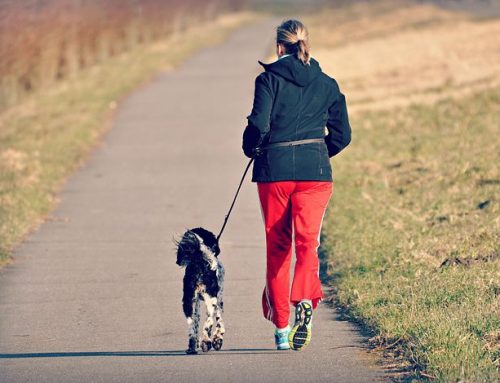
It is common knowledge that exercise is good for the lungs. It expands the capacity of air your body can take on but also helps your heart and lungs with healthy breathing rhythm.
Exercise can also loosen up bad mucous and flush it out of the body.
Your muscles must work harder during exercise, increasing your breathing and oxygen to the muscles improving circulation. The result is your body being better to manage oxygen efficiently and reduce carbon dioxide.
For seniors or physically disabled people, heavy cardio exercise might seem difficult, but there are many methods to exercise the body and get your respiratory system moving. You don’t need to run a marathon or lift a ton; you can simply do breathing exercises and even body exercises while standing or sitting.
The King Kong Method “Chest Percussion”
Percussion removes excess mucous from the lungs. Imagine the sticky nasty looking stuff like snot. Terrible, but it is a reality that he mucous attaches to the inside of your lungs and does not want to come off.
Commonly, respiratory medical experts will use a cupped hand technique and tap the chest in key areas to lose on the mucous. I practice on myself and do the King Kong self-punch method but again depending on your age and condition consult your doctor.
Percussion has several techniques. The King Kong self-therapy method is simple and easy but other methods involve lying down on the stomach with your head lower than your chest and having someone cup their hands and tap on your back working form the top to bottom and back and forth. This helps mucous move up and out of the lungs.
Herbs, Spices, Supplements, and Vitamins That Support Cardio Health
Fresh & Natural is always the best but many supplements and vitamins support cardiovascular health. Just make sure they are of good quality.
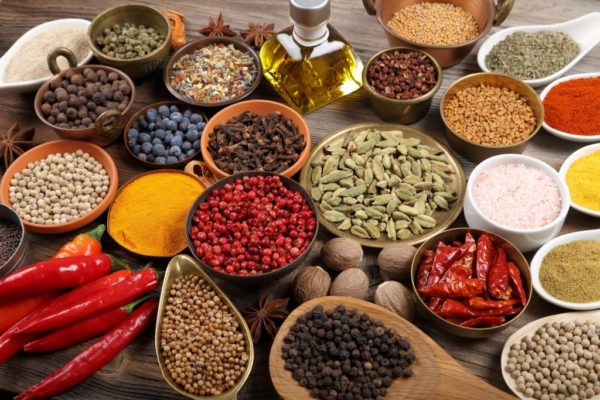
Peppermint: Mint relaxes the bronchial muscles. The vapor feeling of mint opens up the lungs to breathe easier. Peppermint essential oil a potent extract from the mint leaf is amazingly effective especially drinking with hot water breathing in the steam.
Eucalyptus Essential Oil contains terpenes like lime and pine.
This works like peppermint and is a common ingredient in cough drops and is known for its antibacterial & antiviral properties reducing inflammation.
Thyme relieves coughing, inflammation, and has antioxidant properties. Its antimicrobial effects support a good defense against bacteria, viruses, and fungus.
Rosemary: Full of vitamins C and A and a full range of minerals which boost your immune system and works to removes toxins. Rosemary also acts as an antioxidant with antimicrobial effects.
‘Ginger’ 2500 Years of Healing History
Ginger has a range of health benefits and the lungs being a big one. Improving the circulation of the blood with oxygen from the lungs. Ginger breaks down mucous opening the airways for the exchange of oxygen to carbon dioxide. A super herb in its right as it also acts as an anti-inflammatory natural solution with its warm soothing sensation. Besides, eating ginger can soothe acids in the stomach relieving heartburn that then effects breathing. For me chewing on fresh ginger not only increase my energy from good blood circulation, but it also leaves a clean open feeling throughout my throat and upper chest.
Oregano has been known to act as a natural decongestant and antihistamine which in turn improves your cardio health and boosts your immune system.
Grape Seed Extract is multiple times stronger than vitamin E and C which combat oxidation. A supernatural antioxidant powering up the immune system and promoting lung health.
Cayenne Pepper: Capsaicin protects membranes in the lungs and assists in mucus secretions
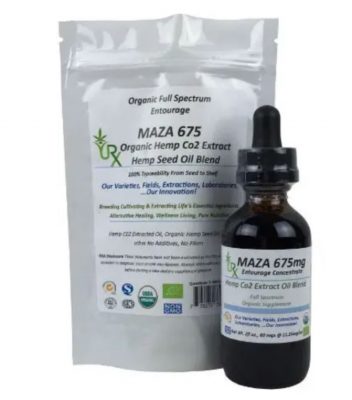 CBD & Hemp Oil Does it help with my Cardio Health
CBD & Hemp Oil Does it help with my Cardio Health
Let’s start by saying according to the FDA, CBD or hemp oil not intended to diagnose, treat, cure, or prevent any disease. There is not much research available on CBD and Hemp Oil for chronic lung health problems. Studies have looked at how CBD/Hemp Oil can assist in opening airways and avoid low blood oxygen and reduce inflammation. Be cautious and seed the advice from your doctor as research is still lacking in his area.
Vitamins
Vitamin D has become extremely popular since the new COVID19 Pandemic. Why? Because it is the ‘Sunshine Vitamin”. If you are deficient in vitamin D it is easier to get infections in the respiratory tract.
Sunshine gives you natural Vitamin D but D-rich food strengthens the immune system and decreases inflammation in the airways.
Vitamin C is protective against a lot of things in our bodies especially fighting off the negative effects of smoking and exposure to toxic contaminants in the lungs. A known immune system booster when catching the flu or a cold. Vitamin C supplements are good, but nothing is better than natural vitamin C in fruits and other foods.
Beverages that are good for Cardio Health
Green Tea is full of antioxidants and reduces inflammation in the lungs. An ingredient of green tea quercetin works like a natural antihistamine and reduces irritation in the lungs.
Water: Great for many things but vital for good lung health. Water is utilized by the lungs to clean out mucous that causes inflammation. Lungs are 80% water and dehydration have a big impact on lung health.
Foods that Clear out the Lungs
Yes, what type of diet you have matters and certain foods assist in clearing out the lungs.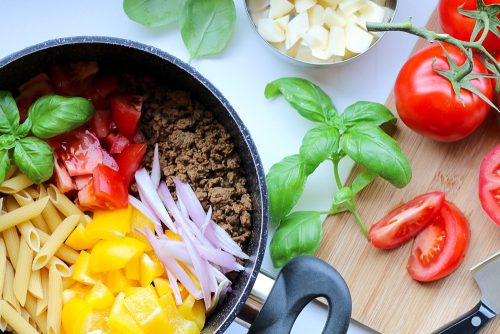
Cruciferous Vegetables can cause uncomfortable bloating which puts pressure on your lungs but there is another side of the coin you need to understand. Vegetables like cabbage, broccoli, cauliflower, bok choy, kale, brussels sprouts have positive effects on lung health and help reduce the risk of lung disease.
Honey Eat your Greens! Leafy greens strengthen lung health and create protection from inflammation and infection. Leafy greens that contain lots of chlorophyll like spinach, kale, and wheatgrass, support blood flow to the lungs. Besides, they contain carotenoids which work as an antioxidant that cause damage.
Protein Rich Foods are vital to good cardio health. Normally a US diet gets little proteins in the morning, and possibly a bit more during lunch, but most proteins are consumed for dinner. It is important to get good healthy proteins and spread that out in each meal instead of only for dinner. Nuts, legumes, eggs, protein smoothies, lean meats, Greek-style yogurt, have been known to reduce the risk of lung cancer.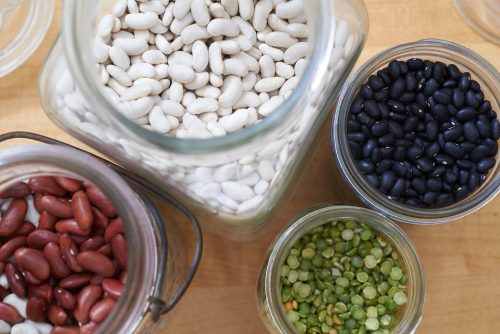
Complex Carbohydrates are especially important for people who suffer from COPD. Reducing carbohydrates in your diet and replacing them with eating more healthy fats. Consuming healthy carbs like wholesome whole grain bread steel-cut oatmeal, muesli is a positive. Negative simple carbs like processed sweets, white bread with lots of preservatives, and sugary sodas just don’t do any good and are your enemy to your health.
Healthy Fats. Doctors have found that a low carbohydrate and high-good fat diet can improve breathing. Having one serving of nuts daily is important with some nuts being the richest plant source of omega-3 fats. Fatty fish like salmon, sardines, anchovies also are amazingly effective as good healthy fats which in turn boost your cardio health.
Foods That Reduce Inflammation
When our lungs are suffering from inflammation and the airways are not open freely our chest starts to feel congested and heavy with shortness of breath. There are many types of foods that reduce inflammation. Turmeric, olives, cherries, blueberries, lentils, beans, walnuts all have a good record of being effective in healthier lungs.
Apples and Blueberries are two fruits to take note of. Apples contain quercetin which is known as an antioxidant protecting against pollutants like smoke, dust, and toxic fumes. Blueberries also packing a potent punch of antioxidant flavonoids reduce the negative effects of pollutants.
Your Environment at Home, Work, or Wherever you Go.
We have just got through going through lots that can be done for good cardio health or ways to improve your lung health when things have gone wrong. Meaning exposed to lots of toxic pollutants that enter your body through the lungs. Just remember that once your air sacs become damaged, they can’t be repaired. This makes your lungs a top priority. All of the suggestions won’t achieve your goal if you first don’t fix the #1 problem. Kill off the source of these toxic invaders.
In your Home
You might think your home is your safe zone but can be the main source of your lung health troubles. Here are some things to consider about your home.
Change your linens regularly as your bed area can collect up a lot of dust and when you sleep and roll around that dust comes straight into your lungs.
Clean Up and use a good quality Vacuum with a good filter so you are not blowing the fine dust right out the back into the air and your lungs.
Mopping keeps the dust down but be cautious of strong chemical cleaners in which fumes are overwhelming to your lungs.
Dust and mold like humidity and using de-humidifier and keeping the good circulation of the air and using an exhaust fan when you are cooking. Prevent mold.
Radon is a naturally occurring radioactive gas found in many soils that can contribute to lung cancer. You can pick up a radon test kit from your local Home Depot or Lowes.
Avoid chemical-based home products when you can. Fragrance-free and non-aerosol sprays.
Air Purifiers speak for themselves and many indoor plants can assist in naturally purifying the air. If you have central heating and cooling, change the filters regularly. Clean the vents, screens on your windows.
Outdoor Air Quality “Smog Alert”
If you are as old as me and from a big city like Los Angeles, you remember smog alerts. I remember taking a hike or swimming for a few hours and even though I was young with fresh lungs, by the end of the day, I would have lung pressure in my upper chest.
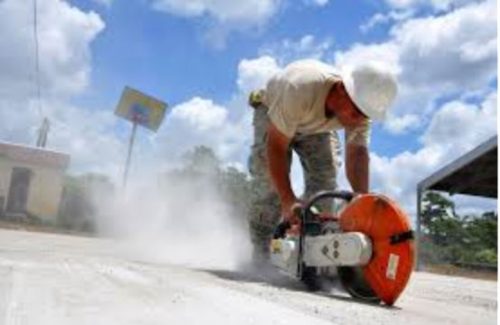
There have been lots of improvements in air quality but do not ignore your surroundings and constantly monitor the air quality. Check online as most cities offer daily air quality information.
Be aware of passing cars, big trucks, buses as you walk along the sidewalk. Many times, they can create a wind that pulls up toxic dust from the road right into your path.
Consider being around construction sites with equipment working away creating and kicking up dust. Construction sites use lots of toxic materials and things like glues, paints, sanding, and lots of dust.
Get Plenty of Fresh Air. Just what your lungs need. Fresh Clean air to open your air sacs.
Consider wearing an air mask when being outside around air pollution situations.
If you made it this far, I don’t need to repeat myself on the importance of protecting your lungs. Regardless of pollution or smoking, with COVID19, SARS, and other novel respiratory illnesses we all share a common threat. The best protection is having the healthiest lungs possible and an optimized immune system.
Please follow us as we continue to explore simple natural economic ways to be healthy in these modern times. Silk Road Botanicals welcomes your input, ideas, and new healthy suggestions we did not cover in this article.
 ...ALWAYS 2-3 DAYS FREE SHIPPING !
...ALWAYS 2-3 DAYS FREE SHIPPING !

